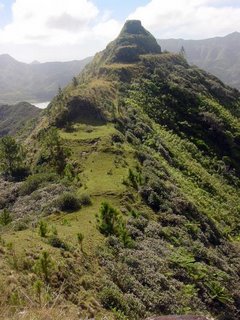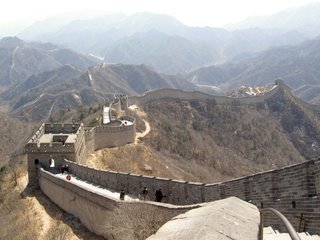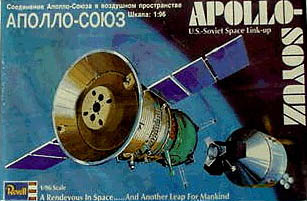Monday, October 30, 2006
Future Lessons, Past Tense
 So I'm obsessed with SETI. Not the UFOs-are-ETs obsession (compellingly conveyed in the previous offering from YouTube). The Carl Sagan variety of SETI. What Stanislaw Lem so eloquently expressed prior to his recent death (see Solaris). What Jill Tarter can still be caught expressing. Wanting to know about the origins and fates of putative extraterrestrial civilizations is really just cover, however. For wanting to know about the origin and fate of our own. To look outward, you have to look inward, and vice versa.
So I'm obsessed with SETI. Not the UFOs-are-ETs obsession (compellingly conveyed in the previous offering from YouTube). The Carl Sagan variety of SETI. What Stanislaw Lem so eloquently expressed prior to his recent death (see Solaris). What Jill Tarter can still be caught expressing. Wanting to know about the origins and fates of putative extraterrestrial civilizations is really just cover, however. For wanting to know about the origin and fate of our own. To look outward, you have to look inward, and vice versa.
You want to see the future? Look to the past.
Remote island provides clues on population growth, environmental degradation by Jim Barlow (University of Oregon)
Aug. 25, 2006
. . . "These were all related people who arrived in Rapa," Kennett said. "They generally get along and collaborate when they arrive, but with time and growing populations there was division, then competition between different family lineages, resulting in significant amounts of aggression. This division led to the establishment of fortifications in not very desirable locations, such as mountaintop ridges, where it's cold, windy, inhospitable for crops, and far away from water."
In the course of expansion, the islanders developed pond agriculture, similar to rice paddies, for growing taro, a root-crop much like potatoes. The expansion of pond-field agriculture on the island parallels evidence from sediment cores for deforestation and erosion. Taro remains the island's food staple. Extending into the sea from the various drainage systems flowing from the upland fortifications are linear walls that likely served as tidal fish traps.
Rapa's Tevaitau Fortification —>
"The archaeological landscape is phenomenal," Kennett said. "There are domestic and agricultural terraces all around the island. Many of the ridge tops are flattened and there are staircases carved into the mountainsides. Arable land and access to fishing grounds were limited, and the farming areas and fish traps would have been well defended...."
The longer we play the game of civilization, the better the chance of one day declaring victory (survival). Unrestrained exploitation of resources can dramatically shorten the game, narrowing the window of opportunity or shutting it entirely. Rapa's settlers might have met their crisis differently, by cooperating to field expeditions, establishing footholds on Pitcairn Island, Rapa Nui, Sala-y-Gómez (Motu Motiro Hiva), and a big prize: the then-uninhabited Juan Fernández Islands. And - only if ultimately successful - Chile and South America. (The other direction would take them back to the lands whence they came.) Their chances might not have been very good, but what was the alternative? Decline, either fast or slow, on Rapa?
(Kind of a fun link related to these remote islands: Matthew's Stuff: Remote Islands of the South Pacific (Part 2).)
Perhaps the only real alternative to continued exploration would have been to rein in their population and carefully manage Rapa's resources. Either way, cooperation is essential to survival.
Climate change rocked cradles of civilization by Simon Dunford (University of East Anglia)
07/09/2006
. . . The early civilisations of Egypt, Mesopotamia, South Asia, China and northern South America were founded between 6000 and 4000 years ago when global climate changes, driven by natural fluctuations in the Earth’s orbit, caused a weakening of monsoon systems resulting in increasingly arid conditions. These first large urban, state-level societies emerged because diminishing resources forced previously transient people into close proximity in areas where water, pasture and productive land was still available....

Dr Brooks said: “Having been forced into civilized communities as a last resort, people found themselves faced with increased social inequality, greater violence in the form of organised conflict, and at the mercy of self-appointed elites who used religious authority and political ideology to bolster their position. These models of government are still with us today, and we may understand them better by understanding how civilisation arose by accident as a result of the last great global climatic upheaval....”
Well, here we are again. Having come nearly full circle.
We are absolutely at our next great crossroads as a species, what some today like to call a tipping point. Our population is leveling off globally. Competition for basic resources is at the same time heating up. Oil is first, but what's up next? Water?
Blue Planet: The geopolitics of water by Dan Whipple (UPI Science News)
Maybe so.
What will we do? What we've been doing, naturally: Fight each other. Will we also work on collective solutions to these global crises? I think we will. We will do both the Space Race and the International Space Station. Which will prevail?
My own belief is that there will be no small amount of luck involved. The society which hits on a successful strategy first will be emulated by others looking for answers. So long as the solution is empire and based on military power, cooperation will take a back seat to aggression and conflict. The good news - from the point of view of people living in the US - is that America stands supreme in military might.

But that road may not prove sustainable. Even for Americans. When it is finally realized that aggressive self-interest must be tempered by civilized cooperation, it may be too late. As usual, timing is everything.
 So I'm obsessed with SETI. Not the UFOs-are-ETs obsession (compellingly conveyed in the previous offering from YouTube). The Carl Sagan variety of SETI. What Stanislaw Lem so eloquently expressed prior to his recent death (see Solaris). What Jill Tarter can still be caught expressing. Wanting to know about the origins and fates of putative extraterrestrial civilizations is really just cover, however. For wanting to know about the origin and fate of our own. To look outward, you have to look inward, and vice versa.
So I'm obsessed with SETI. Not the UFOs-are-ETs obsession (compellingly conveyed in the previous offering from YouTube). The Carl Sagan variety of SETI. What Stanislaw Lem so eloquently expressed prior to his recent death (see Solaris). What Jill Tarter can still be caught expressing. Wanting to know about the origins and fates of putative extraterrestrial civilizations is really just cover, however. For wanting to know about the origin and fate of our own. To look outward, you have to look inward, and vice versa.You want to see the future? Look to the past.
Remote island provides clues on population growth, environmental degradation by Jim Barlow (University of Oregon)
Aug. 25, 2006
. . . "These were all related people who arrived in Rapa," Kennett said. "They generally get along and collaborate when they arrive, but with time and growing populations there was division, then competition between different family lineages, resulting in significant amounts of aggression. This division led to the establishment of fortifications in not very desirable locations, such as mountaintop ridges, where it's cold, windy, inhospitable for crops, and far away from water."
In the course of expansion, the islanders developed pond agriculture, similar to rice paddies, for growing taro, a root-crop much like potatoes. The expansion of pond-field agriculture on the island parallels evidence from sediment cores for deforestation and erosion. Taro remains the island's food staple. Extending into the sea from the various drainage systems flowing from the upland fortifications are linear walls that likely served as tidal fish traps.
Rapa's Tevaitau Fortification —>

"The archaeological landscape is phenomenal," Kennett said. "There are domestic and agricultural terraces all around the island. Many of the ridge tops are flattened and there are staircases carved into the mountainsides. Arable land and access to fishing grounds were limited, and the farming areas and fish traps would have been well defended...."
The longer we play the game of civilization, the better the chance of one day declaring victory (survival). Unrestrained exploitation of resources can dramatically shorten the game, narrowing the window of opportunity or shutting it entirely. Rapa's settlers might have met their crisis differently, by cooperating to field expeditions, establishing footholds on Pitcairn Island, Rapa Nui, Sala-y-Gómez (Motu Motiro Hiva), and a big prize: the then-uninhabited Juan Fernández Islands. And - only if ultimately successful - Chile and South America. (The other direction would take them back to the lands whence they came.) Their chances might not have been very good, but what was the alternative? Decline, either fast or slow, on Rapa?
(Kind of a fun link related to these remote islands: Matthew's Stuff: Remote Islands of the South Pacific (Part 2).)
Perhaps the only real alternative to continued exploration would have been to rein in their population and carefully manage Rapa's resources. Either way, cooperation is essential to survival.
Climate change rocked cradles of civilization by Simon Dunford (University of East Anglia)
07/09/2006
. . . The early civilisations of Egypt, Mesopotamia, South Asia, China and northern South America were founded between 6000 and 4000 years ago when global climate changes, driven by natural fluctuations in the Earth’s orbit, caused a weakening of monsoon systems resulting in increasingly arid conditions. These first large urban, state-level societies emerged because diminishing resources forced previously transient people into close proximity in areas where water, pasture and productive land was still available....

Dr Brooks said: “Having been forced into civilized communities as a last resort, people found themselves faced with increased social inequality, greater violence in the form of organised conflict, and at the mercy of self-appointed elites who used religious authority and political ideology to bolster their position. These models of government are still with us today, and we may understand them better by understanding how civilisation arose by accident as a result of the last great global climatic upheaval....”
Well, here we are again. Having come nearly full circle.
We are absolutely at our next great crossroads as a species, what some today like to call a tipping point. Our population is leveling off globally. Competition for basic resources is at the same time heating up. Oil is first, but what's up next? Water?
Blue Planet: The geopolitics of water by Dan Whipple (UPI Science News)
Maybe so.
What will we do? What we've been doing, naturally: Fight each other. Will we also work on collective solutions to these global crises? I think we will. We will do both the Space Race and the International Space Station. Which will prevail?
My own belief is that there will be no small amount of luck involved. The society which hits on a successful strategy first will be emulated by others looking for answers. So long as the solution is empire and based on military power, cooperation will take a back seat to aggression and conflict. The good news - from the point of view of people living in the US - is that America stands supreme in military might.

But that road may not prove sustainable. Even for Americans. When it is finally realized that aggressive self-interest must be tempered by civilized cooperation, it may be too late. As usual, timing is everything.


